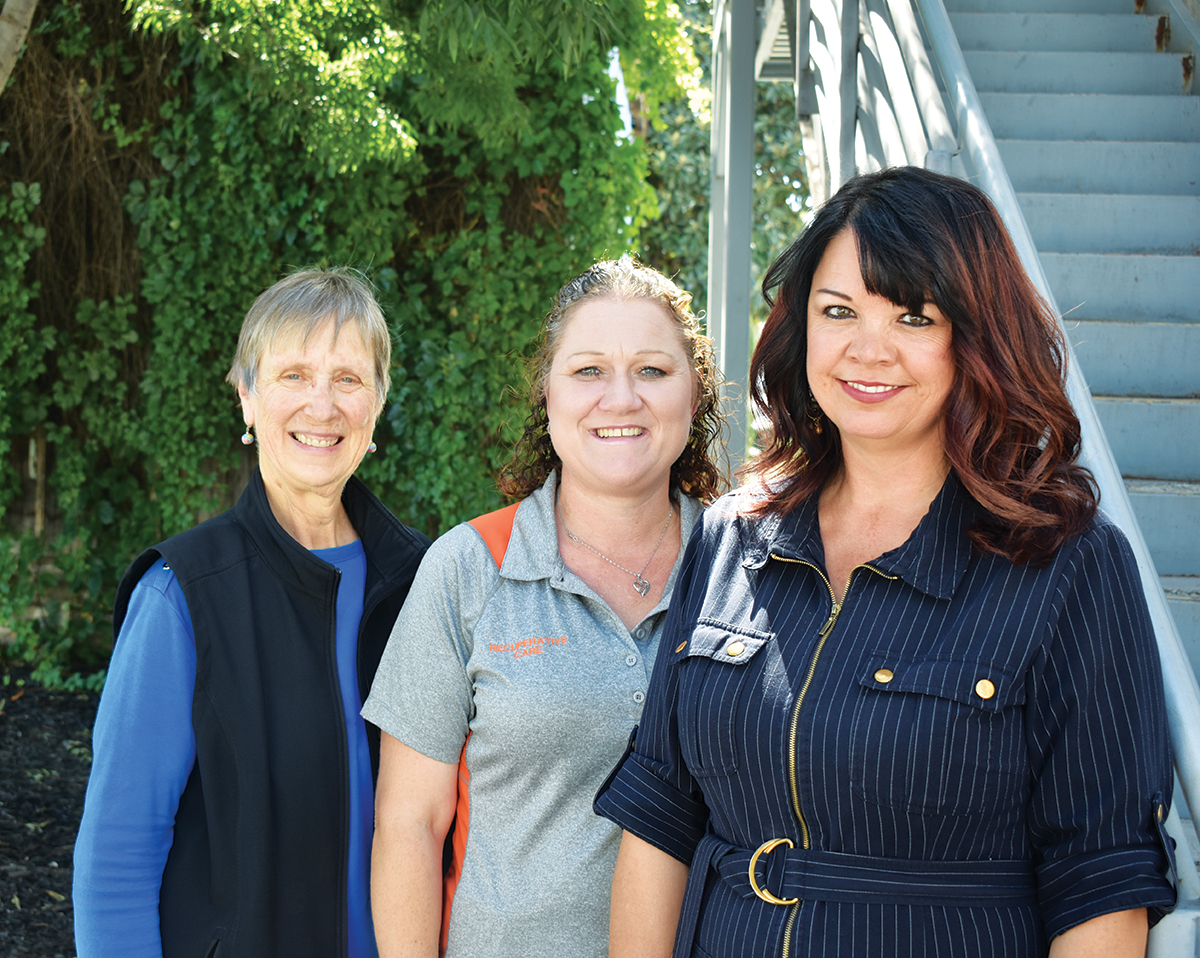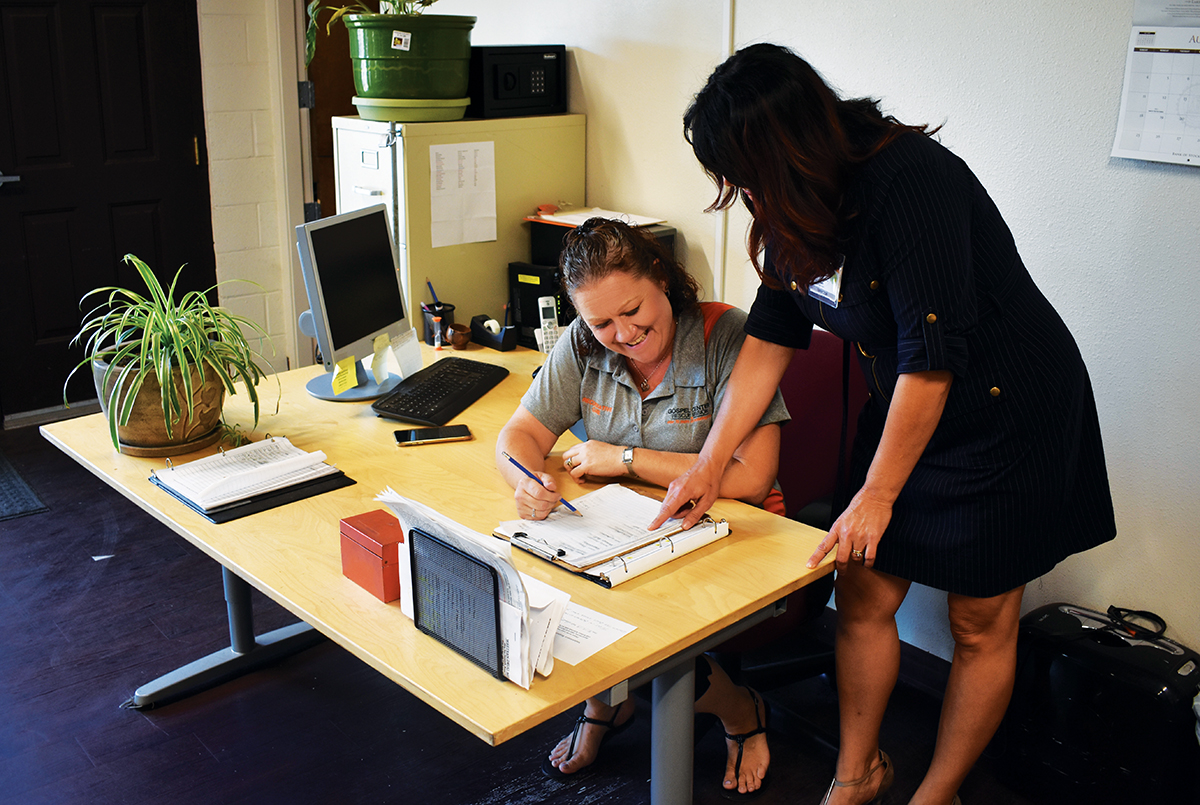BY DANI SCHENONE
How two community non-profits are combining forces
October is Breast Caner Awareness Month, and we want to honor this month by featuring (GCRM), a decades-old nonprofit dedicated to the long-term recovery of the homeless men, women and children of San Joaquin County, serving all, regardless of religious beliefs, ethnicity, sexual orientation or gender identity.

For more than 75 years, GCRM has offered several programs, ranging from addiction treatment and emergency lodging to payee services and clothing.
The nonprofit is also home to the Country’s only recuperative care program. The program offers those who are experiencing homelessness a place to rest while completing their medical recove, after being released from hospitals throughout the Country.
“We do all we can to get their needs met by utilizing our partnerships with community entities,” Director of Recuperative Care Program Sandra Maple-Deaver said.
Maple-Deaver has been working at the nonprofit since 2015. She completed the organization’s New Life Program, began tutoring in the Learning Center, and moved on to work within their Women’s New Hope Family Shelter. It was during that time she secured her current role as director. Maple-Deaver said the work helps her give back.
“It allows me to give [others] an opportunity to make changes in their lives, if they are willing, through a better understanding of where they are coming from,” Maple-Deaver said.
The center provides clients with 24-hour shelter beds and recovery care to recuperate from treatment, transportation to and from appointments, payee services, three meals a day, access to free clothing, and they also help connect clients with agencies for personal needs.
GCRM’s clients are referred to the organization from community partners like Dignity Health St. Joseph’s Medical Center (SJMC), San Joaquin General Hospital, Community Medical Centers, and Health Plan of San Joaquin.
SJMC’s Community Health Director Tamm Shaff said their care coordination team works closely with GCRM staff to ensure appropriate transfer of patient of patients to the program.
According to Shaff, when someone who is experiencing homelessness is diagnosed with breast cancer at SJMC, the first thing they stress is they are not alone.
Patients become a part of a cancer team that consists of physicians, nutritionists, patient service navigators, and others. They work together to create an effective treatment plan. Throughout this process, they partner with GCRM when there is a need for their services.
“[We] are long-time partners,” Shaff stated. “We value the work GCRM does. We see them as a leader in serving the homeless in our community.”

For example, one of GCRM’s clients was diagnosed with breast cancer at a local hospital. However, she was unable to get to her medical treatments. She also did not have a stable environment to physically recuperate from chemotherapy.
The hospital referred her to GCRM, and they offered her several services, like transportation to her appointments, shelter while she regained strength, and meals to maintain a healthy diet during recovery.
The program allowed the patient to care for her physical health, all while remaining active in treatment. Being in a welcoming environment allowed her to stay positive. She confessed she never would have been able to maintain her health without the program.
While the organization has experienced years of success, there are challenges. Funding is one of the biggest challenges the organization faces. Other struggles are finding affordable housing and obtaining more community partnerships. “Everyone in the homeless community has a different story to tell'” Maple-Deaver said. “And being willing to listen to that story makes a big difference.”
If you know someone who could benefit from this program, or any of the other programs GCRM offers, please call at 209-320-2327. If you would like to donate or support the organization, please visit gcrms.org/Give



